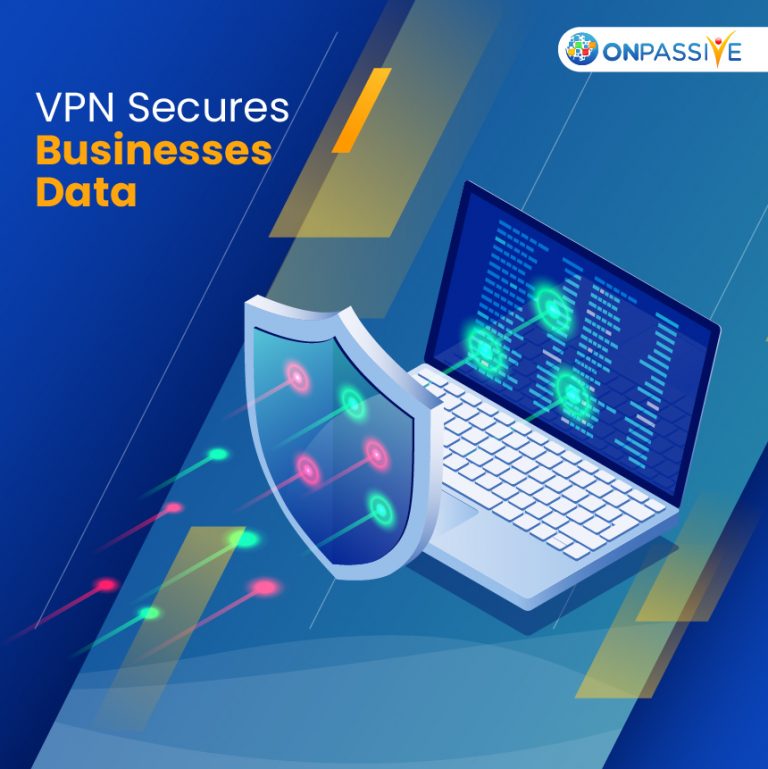
The internet is a tremendously representative asset to organisations in the corporate sector. It is vital for any firm that wants to grow or stay active in an increasingly competitive market, whether to break down communication barriers or facilitate operational processes. Despite the advancement of security solutions to suit the needs created by the Internet, the global computer network is nevertheless utilised as a medium and tool for bad users that seek to deceive or capture people and businesses.
In the current context, security specialists are challenged to retain basic security ideas in businesses, ensuring that the Internet provides firms with improved integration, efficiency, and productivity. Let’s understand what Virtual Private Network(VPN) is and why it is an important security issue for enterprises.
What is VPN?
A VPN (Virtual Private Network) is a private network built on top of a public network’s architecture, such as the Internet. Companies of all sizes and categories are now the primary consumers of this concept or technology, allowing offices and distant employees to access their private network in perfect security via traditional Internet connections (public or domestic).
VPN Importance
VPN hides information
Websites and apps can monitor your internet activities in real-time and analyse the information they gather. A VPN can keep the information you send and receive anonymous and safe by preventing web browsers and others from accessing your connection. Some VPNs also secure your data with 256-bit military-grade encryption.
Avoid data restriction
When you utilise a particular volume of data, your internet service provider slows it down. You won’t have access to a data cap if you use a VPN because your data will be protected from prying eyes from ISPs and others. To enhance internet performance for some of their users, ISPs can impose data caps.
Avoid throttling the bandwidth
You may well have experienced bandwidth throttling if you’ve seen reduced internet speeds on different websites and at different times. ISPs or anyone with administrative access to your network could be to blame for the sluggishness. A VPN can assist you. By securing your device’s internet traffic, it can prevent sluggishness. This hides the destination of your web traffic and prevents others on the same network from viewing it.
Use services in your region
Some VPNs claim to be able to unblock geo-restricted Netflix as well as other material. How? A VPN can mask your IP address, causing a content provider to believe you’re surfing in a different location or region where access is permitted. Note: Always check your streaming service’s Terms of Service agreements to see what’s allowed and respect their rules. Also, keep in mind that utilising a VPN to get around a country’s restrictions may result in penalties.
Avoid censorship
Some VPNs can assist you in circumventing geographical restrictions. Some countries, for example, limit or prohibit access to such websites, such as social media sites, or censor specific content. On the other hand, a VPN may be able to assist you in gaining access by having your traffic appear to originate from a different location. Remember that it is the user’s obligation to determine whether or not their usage of a VPN is lawful and to check the country’s laws before doing so.
How VPN works
You must first join up with a VPN provider, and then download their VPN software if you wish to use a VPN for personal online activity (as opposed to business-related use, as many firms set up their own VPNs allowing you to access their network when you’re out of the office) (also called a VPN client).
When you wish to connect to your VPN service, you use the app to connect. They secure your identifying data before sending you on to the Internet, so your Internet Service Provider (ISP) will only view encrypted data. They won’t be able to see what websites you’re viewing, and they won’t be able to share that information with government organisations like the NSA.
Your identity will be kept secret not just by your ISP but also by the websites you visit. They will only be able to see the IP address of the VPN server you are using, not your computer’s unique IP address. How much consideration have you put into the public networks that you use?
There’s a whole type of cybercrime known as “evil twin” websites, in which criminals set up a false free Wi-Fi network where you’d expect to find a real one, such as an airport or a shopping centre. You need to check your email, and hey, look, it’s free! The next moment you know, you’ve connected to a network created specifically for someone to steal as much of your personal data as possible. Unless you’re using a VPN (which works on your phone and your other devices), all of your information will be encrypted before they can access it.
Conclusion
People are looking for the best ways to avoid being monitored when accessing the web, and the best answer is to use a VPN. It aids in safeguarding and preventing a website’s owner’s Internet Service Provider from tracking your browsing activity. The limited geographical possibilities and bandwidth constraints that free VPNs have over the internet are problems. As a result, the best option is to invest in a reputable and authentic VPN that will provide enough speed, connection, and data protection.
If you are looking for a secure network for your business, then ONPASSIVE VPN System, O-Virtual, is an ideal tool. To know more about O-Virtual, contact us.



Rukiya Khatun
3 years ago